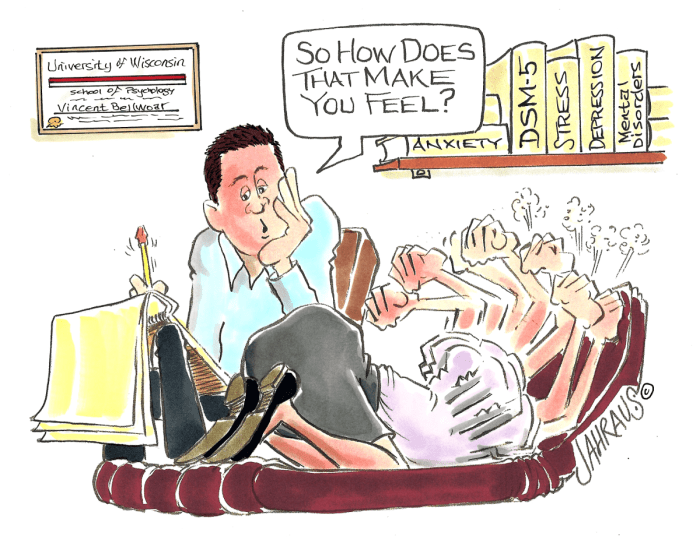The New Music Therapist’s Handbook is an invaluable resource for music therapists of all levels, providing a comprehensive overview of the field. This handbook offers practical guidance on ethical considerations, assessment and treatment planning, music therapy interventions, and professional development.
With its in-depth exploration of music therapy’s role in various settings, from hospitals to schools, this handbook empowers music therapists to effectively address the unique needs of diverse populations.
Understanding the Role of a Music Therapist

Music therapists are healthcare professionals who use music to address the physical, emotional, cognitive, and social needs of individuals and groups.
They work in a variety of settings, including hospitals, schools, nursing homes, and community centers, and they use music to help people improve their communication skills, manage stress, reduce pain, and cope with illness or disability.
Unique Qualities and Skills of Effective Music Therapists
- Strong musical skills
- Excellent communication and interpersonal skills
- Empathy and compassion
- Ability to work independently and as part of a team
- Understanding of music theory and music therapy techniques
Ethical Considerations in Music Therapy
Music therapists are guided by a code of ethics that ensures the safety and well-being of their clients.
These ethical guidelines include:
- Respect for client autonomy
- Confidentiality
- Do no harm
- Justice and fairness
Ethical Dilemmas in Music Therapy, The new music therapist’s handbook
Music therapists may encounter ethical dilemmas in their practice, such as:
- How to balance the client’s right to autonomy with the therapist’s responsibility to protect the client from harm
- How to maintain confidentiality when the client is a minor or when there is a risk of harm to the client or others
- How to deal with clients who have different cultural or religious beliefs about music
Music therapists can address ethical dilemmas by consulting with colleagues, supervisors, or ethics committees.
Assessment and Treatment Planning in Music Therapy
Music therapists use a variety of assessment techniques to evaluate client needs, including:
- Interviews
- Observation
- Musical improvisation
- Standardized assessments
Based on the assessment findings, music therapists develop individualized treatment plans that Artikel the goals of therapy, the interventions that will be used, and the frequency and duration of sessions.
Music Therapy Interventions and Techniques
Music therapists use a variety of interventions and techniques, including:
- Improvisation:Creating music spontaneously
- Songwriting:Writing and performing original songs
- Music listening:Listening to music for relaxation, stress reduction, or other therapeutic purposes
- Music and movement:Using music to facilitate movement and dance
- Music and imagery:Using music to evoke images and memories
Music Therapy in Different Settings: The New Music Therapist’s Handbook
Music therapy is practiced in a variety of settings, including:
- Hospitals:Music therapy can be used to help patients manage pain, reduce stress, and improve their overall well-being.
- Schools:Music therapy can be used to help children with special needs develop their communication skills, social skills, and academic skills.
- Nursing homes:Music therapy can be used to help older adults reduce loneliness, improve their mood, and maintain their cognitive function.
- Community centers:Music therapy can be used to provide a variety of services to the community, such as stress reduction, music education, and support for people with disabilities.
Research and Evidence-Based Practice in Music Therapy
Music therapy is a research-based profession, and there is a growing body of evidence to support its effectiveness.
Music therapy has been shown to be effective for a variety of conditions, including:
- Pain management
- Stress reduction
- Mood disorders
- Cognitive impairment
- Communication disorders
Music therapists are committed to evidence-based practice, and they use the latest research findings to inform their clinical work.
Professional Development and Continuing Education for Music Therapists

Music therapists are required to complete continuing education credits to maintain their certification.
Continuing education opportunities for music therapists include:
- Workshops
- Conferences
- Online courses
- Mentoring
Professional development is essential for music therapists to stay up-to-date on the latest research and trends in the field.
The Future of Music Therapy

Music therapy is a growing field, and there are a number of emerging trends that are shaping the future of the profession.
These trends include:
- The use of technology in music therapy:Music therapists are increasingly using technology to deliver services, such as telemedicine and virtual reality.
- The integration of music therapy into other healthcare settings:Music therapy is becoming more widely accepted as a complementary therapy in a variety of healthcare settings, such as hospitals, nursing homes, and rehabilitation centers.
- The development of new music therapy interventions:Music therapists are constantly developing new interventions to meet the needs of their clients.
Clarifying Questions
What is the primary role of a music therapist?
Music therapists use music to assess, treat, and prevent a wide range of physical, emotional, and cognitive conditions.
What are some ethical considerations in music therapy?
Music therapists must adhere to ethical guidelines regarding confidentiality, informed consent, and the avoidance of harm.
How does a music therapist develop a treatment plan?
Treatment plans are developed based on an assessment of the client’s needs and goals, and may include a variety of music therapy interventions.
What are some common music therapy interventions?
Music therapy interventions include improvisation, songwriting, music listening, and rhythmic entrainment.
How can music therapists stay up-to-date with research?
Music therapists can stay informed about research by reading journals, attending conferences, and participating in continuing education programs.